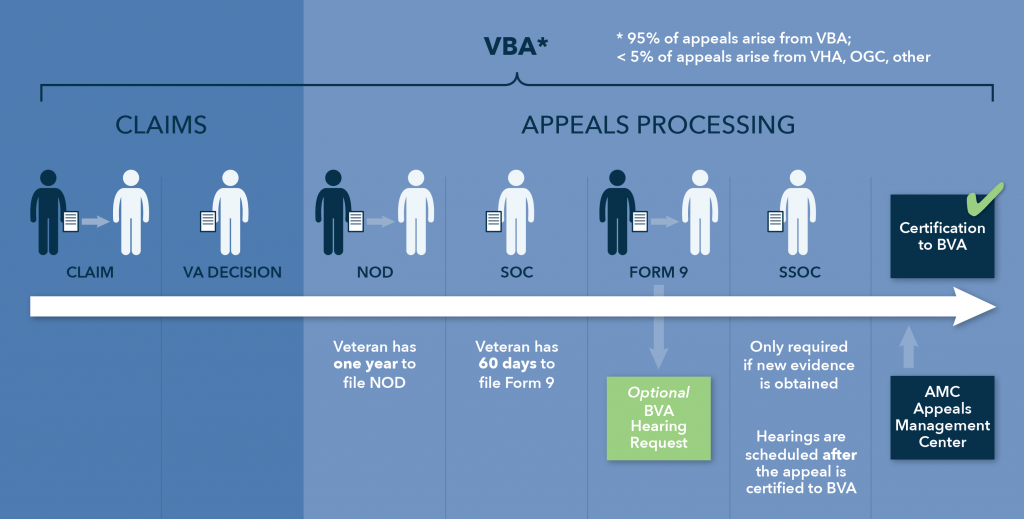So, after all the hard work involved with replying to the VA’s requests for more records and for enduring one or more Compensation and Pension, or C&P, exams, you get a notification letter from the VA where they deny your claim or don’t rate your disability high enough. Welcome to the VA appeals process. It can be very frustrating and you may feel like giving up, but don’t take “No” for an answer and know your rights about appealing the decision.
The first thing that you will want to do in the VA appeals process is to file a Notice of Disagreement, or NOD, with the decision. This is the first step in appealing the denial or improper rating. Don’t delay though, because you only have one year from the date of the VA’s decision letter in order to file an NOD. Otherwise, you lose your right to appeal and the decision becomes final.
Two very common and disturbing mistakes is for a veteran to file a reconsideration or later file a reopen of the claim, instead of appealing the decision. If someone, whether it be a VA representative or Veteran Service Officer, advises you to file a reopen or reconsideration instead of an appeal, they may not be looking out for your best interests. Don’t let them scare or intimidate you when they say that the VA appeals process will take much longer and be much harder to get approved. Reopens and reconsiderations require you to submit new and material evidence, and you stand the chance of losing your back pay as well.

DRO Hearing
What happens if the VA made a mistake with the evidence that you already submitted with the original claim? It doesn’t matter if you don’t appeal it. The better way to go is to file an NOD and request a DRO Hearing. This is where a Decision Review Officer, or DRO, takes a fresh look at the claim and disregards the previous decision to see if there were any errors made, and new evidence can also be submitted. Often, a DRO will find an error and approve a claim based on existing evidence that was already submitted – this would not be possible with a reopen or reconsideration.
If the DRO continues the previous decision on the claim, then a Statement of the Case, or SOC, is issued. The SOC will explain in detail what the issues are and why the claim was denied or rated accordingly. You will have 60 days from the date of the SOC to file a VA Form 9 to formalize the appeal so that it can be certified to the Board of Veterans’ Appeals, or BVA, in Washington DC. When filing your Form 9, the quickest way to get a hearing date is to request a live videoconference before the BVA.
VA Appeals Process Wait Times
The VA appeals process and initial claims waiting times are published weekly in the Monday Morning Workload Report.
